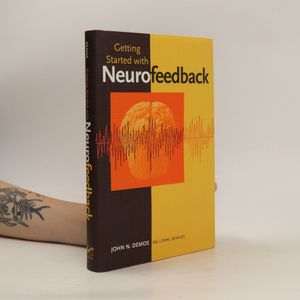Parameter
- 282 Seiten
- 10 Lesestunden
Mehr zum Buch
Neurofeedback is a technique that merges computer technology with equipment to measure cerebral cortex activity, promoting growth and change at the cellular level of the brain. This training empowers clients to use their minds for personal healing. Until now, there has been no comprehensive, easy-to-understand guide for clinicians wanting to incorporate neurotherapy into their practices. This step-by-step guide serves both newcomers and experienced clinicians seeking a concise treatment manual. It addresses key questions such as how neurotherapy works, its rationale, when it is the preferred treatment, and why it should be integrated into existing healthcare practices. The author also discusses essential elements for establishing a successful practice, including recommended training and equipment, and strategies for incorporating neurofeedback into current offerings. The first section introduces neurofeedback's history and scientific foundation, supported by case studies that allow clinicians to apply their learning. Demos clarify the assessment process, while full-color charts and examples of topographical brain maps serve as teaching aids. Advanced techniques are covered later, alongside additional case studies. The book also teaches how to use biofeedback to enhance neurofeedback training and provides insights into complementary medicine. It concludes with practical advice on marketing, equipment purchases, training, su
Buchkauf
Getting Started with Neurofeedback, T.J. Demos
- Sprache
- Erscheinungsdatum
- 2005
- product-detail.submit-box.info.binding
- (Hardcover)
Hier könnte deine Bewertung stehen.





